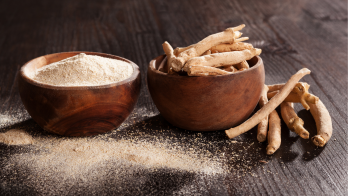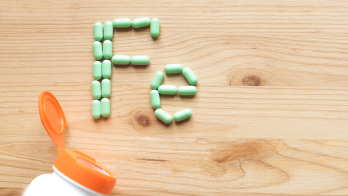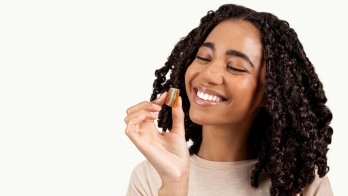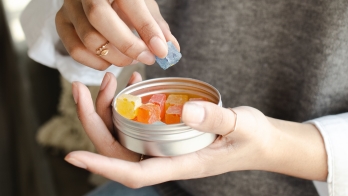Science-backed sleep supplements
Getting enough sleep is essential for everyone, so if you struggle to fall (or stay) asleep, here are some natural supplement options that might help.
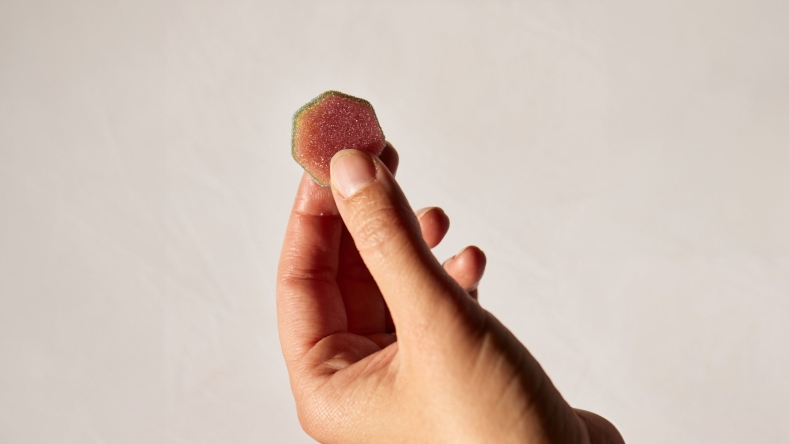
Thanks to our society’s high-paced lifestyle, it can be challenging to get enough quality shut-eye each night. While it may not seem like a big deal to cut back on the number of hours you sleep, a lack of sleep can negatively impact your mood, attention, and creativity, and can increase your risks for high blood pressure, heart disease, stroke, and obesity [ 1 15 16
Even though experts recommend a minimum of 7 hours of sleep per night, it can sometimes be difficult to achieve this number, as many people have trouble falling (or staying) asleep. Rather than relying on prescription sleep medications, natural supplements can help you achieve a full night’s sleep. Here are some of the best sleep supplements, according to science.

Melatonin
Melatonin is one of the most popular natural sleep aids, and for good reason. It is a hormone produced naturally by your body that sends a signal to your brain indicating it’s time for sleep. Taking a melatonin supplement is a safe and effective way to improve your ability to fall (and stay) asleep and has been demonstrated to produce good sleep quality and duration [ 2 3
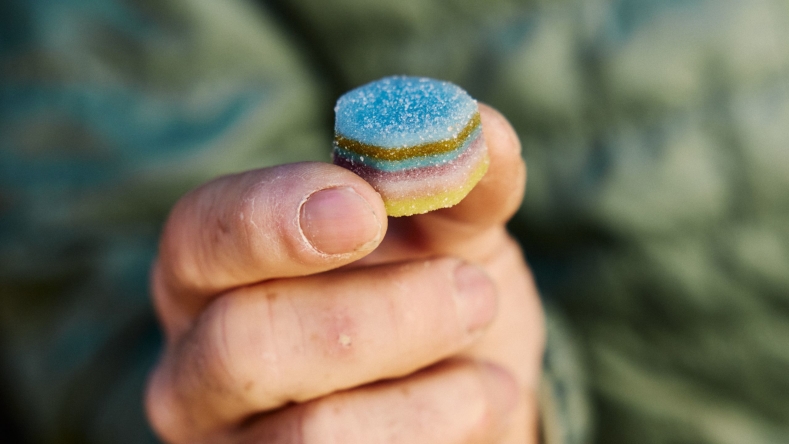
Ashwagandha
Ashwagandha is an evergreen shrub grown in Africa and Asia, and is traditionally used as an adaptogen to reduce stress and anxiety. Evidence has shown that ashwagandha supplementation can improve overall sleep quality in healthy individuals [ 5 5
Get ashwagandha in your Elo Smart Gummies.
Valerian root
Valerian root is a flowering plant native to Asia and Europe, and has been used for decades to aid in sleep quality. Even though its popularity continues to grow in the United States, studies on the supplement have yielded mixed results. Some evidence suggests that valerian root can be a useful herbal supplement to improve sleep, but more research must be done to determine the efficacy and safety of long-term use [ 4
L-theanine
L-theanine is an amino acid found in green tea that appears to promote relaxation and sleep. Studies have demonstrated L-theanine’s ability to improve stress-related symptoms (such as depression, anxiety, and insomnia), as people who took it experienced reduced sleep quality problems and sleep disturbances throughout the night [ 6 7

Magnesium
Magnesium is an essential mineral that helps relax muscles, quiet the mind, and regulate melatonin production. Together, these effects make for a powerful sleep aid due to the impact on muscle relaxation [ 8 8
Learn more about how
magnesium affects exercise performance
and how itaids in muscle recovery
.
Ginkgo biloba
Ginkgo biloba is a tree that has been used in traditional Chinese medicine for centuries due to its potent antioxidant power and positive effects on brain function. Additionally, ginkgo can increase blood flow and reduce anxiety and depression, both of which contribute to getting a good night’s rest [ 9 10
Lavender
Lavender has a calming fragrance that many people enjoy and is often used in aromatherapy as a relaxing agent. When smelled before bed, research suggests that lavender can help improve sleep quality, especially when combined with good sleep hygiene practices (such as maintaining a sleep schedule, avoiding caffeine late in the day, and limiting excess screen time) [ 11 12
Glycine
Glycine is another amino acid that plays a critical role in sleep regulation, as it can help lower body temperature at night, signaling to the body that it’s time to sleep [ 13 14
Summary
Good sleep hygiene is crucial for everyone. A lack of sleep can wreak havoc on your mood, recovery time, energy levels, and athletic performance, as well as increase your risks for high blood pressure, heart disease, stroke, poor mental health, and obesity [ 15
Disclaimer: The text, images, videos, and other media on this page are provided for informational purposes only and are not intended to treat, diagnose, or replace personalized medical care.
Key takeaways
Inadequate sleep can negatively impact your mood, attention, creativity, and athletic performance [
1
].Research shows that sleep duration and quality improvements appear to improve reaction time, accuracy, and endurance performance [
16
].Rather than relying on prescription sleep medications to achieve quality shut-eye, there are many natural supplements that can help you achieve a full night’s sleep.
Melatonin, valerian root, ashwagandha, L-theanine, magnesium, ginkgo, lavender, and glycine are all safe, effective, and natural supplement options that are backed by scientific evidence.
References
Worley S. L. (2018). The Extraordinary Importance of Sleep: The Detrimental Effects of Inadequate Sleep on Health and Public Safety Drive an Explosion of Sleep Research. P & T : a peer-reviewed journal for formulary management, 43(12), 758–763.
Xie, Z., Chen, F., Li, W. A., Geng, X., Li, C., Meng, X., Feng, Y., Liu, W., & Yu, F. (2017). A review of sleep disorders and melatonin. Neurological research, 39(6), 559–565.
https://doi.org/10.1080/01616412.2017.1315864
Zisapel N. (2018). New perspectives on the role of melatonin in human sleep, circadian rhythms and their regulation. British journal of pharmacology, 175(16), 3190–3199.
https://doi.org/10.1111/bph.14116
Shinjyo, N., Waddell, G., & Green, J. (2020). Valerian Root in Treating Sleep Problems and Associated Disorders-A Systematic Review and Meta-Analysis. Journal of evidence-based integrative medicine, 25, 2515690X20967323.
https://doi.org/10.1177/2515690X20967323
Deshpande, A., Irani, N., Balkrishnan, R., & Benny, I. R. (2020). A randomized, double blind, placebo controlled study to evaluate the effects of ashwagandha (Withania somnifera) extract on sleep quality in healthy adults. Sleep medicine, 72, 28–36.
https://doi.org/10.1016/j.sleep.2020.03.012
Hidese, S., Ogawa, S., Ota, M., Ishida, I., Yasukawa, Z., Ozeki, M., & Kunugi, H. (2019). Effects of L-Theanine Administration on Stress-Related Symptoms and Cognitive Functions in Healthy Adults: A Randomized Controlled Trial. Nutrients, 11(10), 2362.
https://doi.org/10.3390/nu11102362
Kim, S., Jo, K., Hong, K. B., Han, S. H., & Suh, H. J. (2019). GABA and l-theanine mixture decreases sleep latency and improves NREM sleep. Pharmaceutical biology, 57(1), 65–73.
https://doi.org/10.1080/13880209.2018.1557698
Abbasi, B., Kimiagar, M., Sadeghniiat, K., Shirazi, M. M., Hedayati, M., & Rashidkhani, B. (2012). The effect of magnesium supplementation on primary insomnia in elderly: A double-blind placebo-controlled clinical trial. Journal of research in medical sciences : the official journal of Isfahan University of Medical Sciences, 17(12), 1161–1169.
Nguyen, T., & Alzahrani, T. (2021). Ginkgo Biloba. In StatPearls. StatPearls Publishing.
Murray, B. J., Cowen, P. J., & Sharpley, A. L. (2001). The effect of Li 1370, extract of Ginkgo biloba, on REM sleep in humans. Pharmacopsychiatry, 34(4), 155–157.
https://doi.org/10.1055/s-2001-15876
Lillehei, A. S., Halcón, L. L., Savik, K., & Reis, R. (2015). Effect of Inhaled Lavender and Sleep Hygiene on Self-Reported Sleep Issues: A Randomized Controlled Trial. Journal of alternative and complementary medicine (New York, N.Y.), 21(7), 430–438.
https://doi.org/10.1089/acm.2014.0327
Guadagna, S., Barattini, D. F., Rosu, S., & Ferini-Strambi, L. (2020). Plant Extracts for Sleep Disturbances: A Systematic Review. Evidence-based complementary and alternative medicine : eCAM, 2020, 3792390.
https://doi.org/10.1155/2020/3792390
Kawai, N., Sakai, N., Okuro, M., Karakawa, S., Tsuneyoshi, Y., Kawasaki, N., Takeda, T., Bannai, M., & Nishino, S. (2015). The sleep-promoting and hypothermic effects of glycine are mediated by NMDA receptors in the suprachiasmatic nucleus. Neuropsychopharmacology : official publication of the American College of Neuropsychopharmacology, 40(6), 1405–1416.
https://doi.org/10.1038/npp.2014.326
Yamadera, W., Inagawa, K., Chiba, S., Bannai, M., Takahashi, M. And Nakayama, K. (2007). Glycine ingestion improves subjective sleep quality in human volunteers, correlating with polysomnographic changes. Sleep and biological rhythms, 5: 126-131.
https://doi.org/10.1111/j.1479-8425.2007.00262.x
Centers for Disease Control and Prevention. (2021, January 4). How does sleep affect your heart health? Centers for Disease Control and Prevention.
https://www.cdc.gov/bloodpressure/sleep.htm
.Watson, A. M. (2017). Sleep and athletic performance. Current Sports Medicine Reports, 16(6), 413–418.
https://doi.org/10.1249/jsr.0000000000000418

